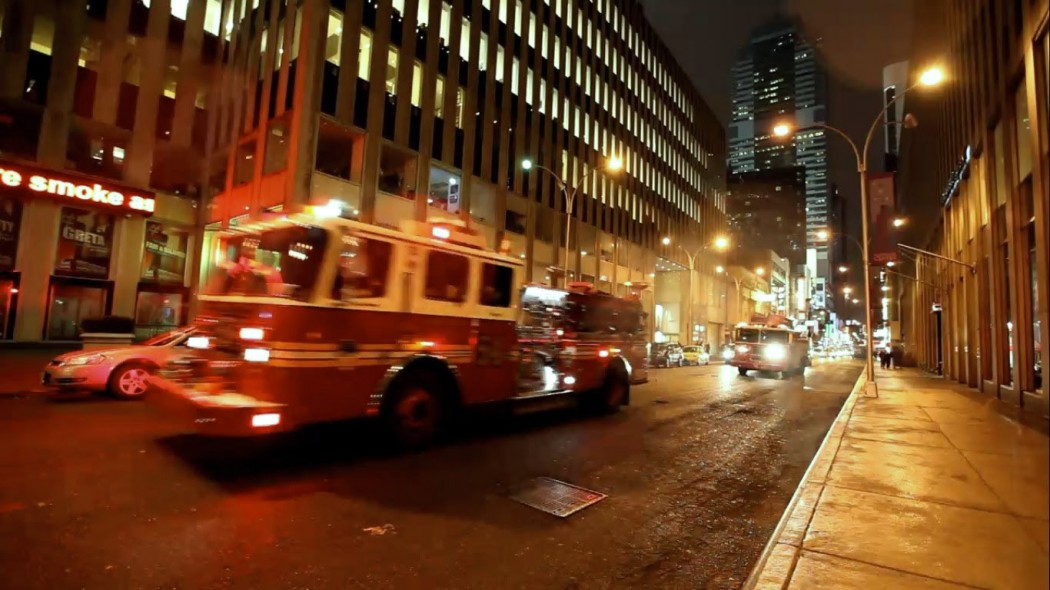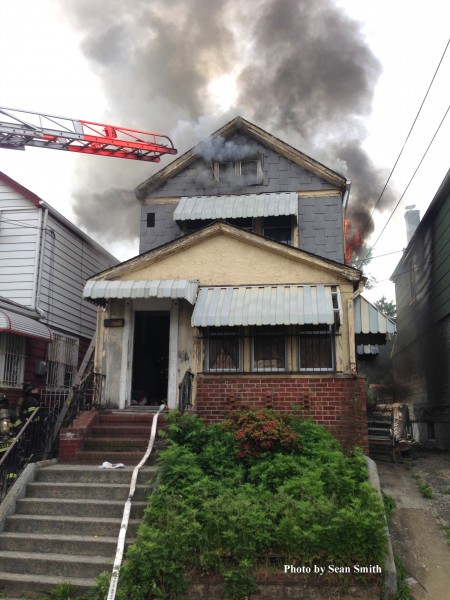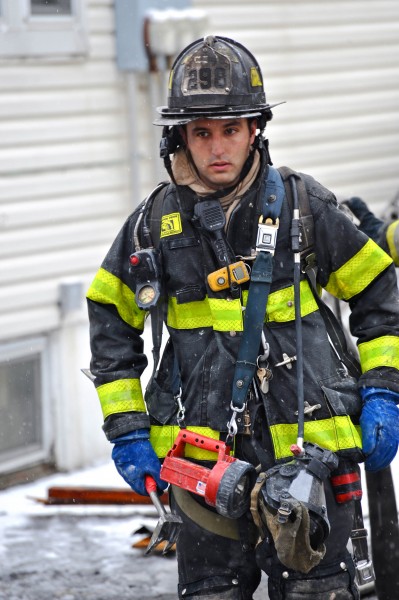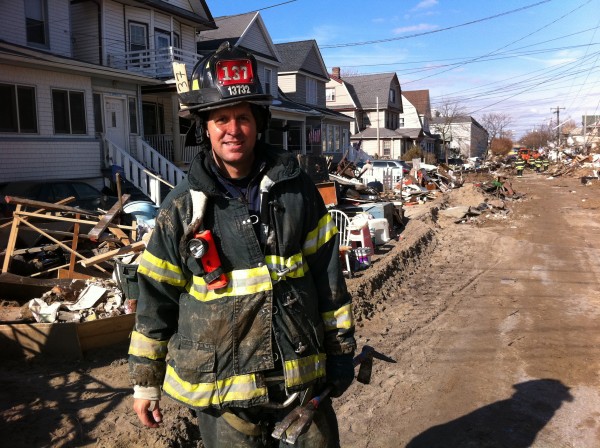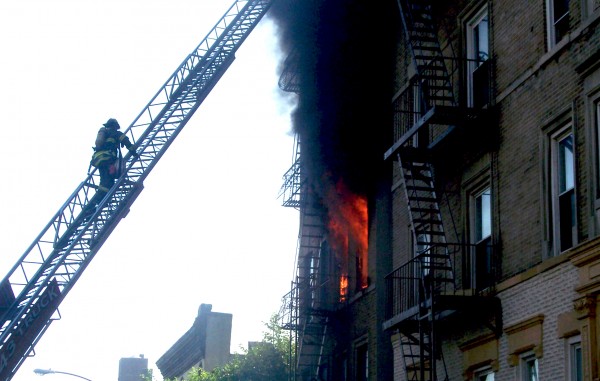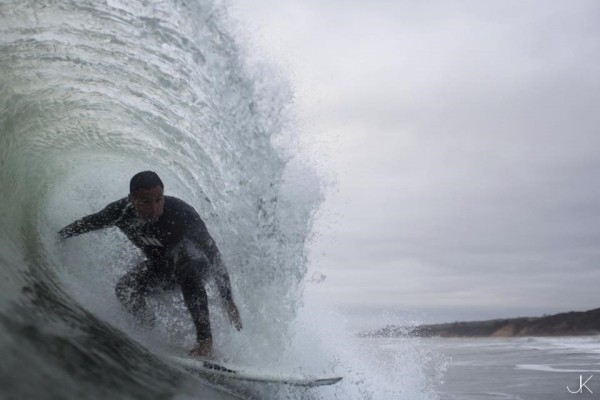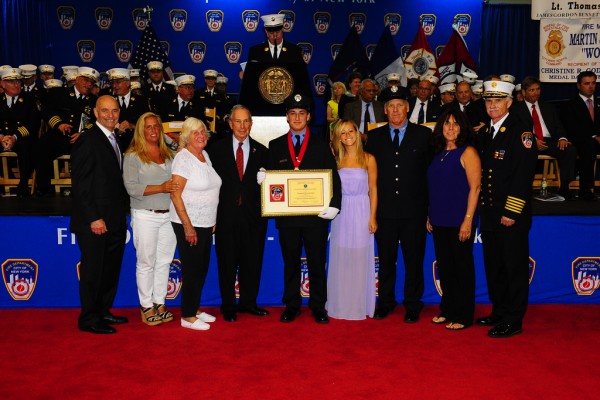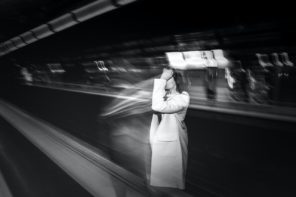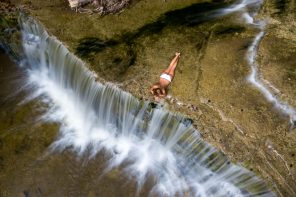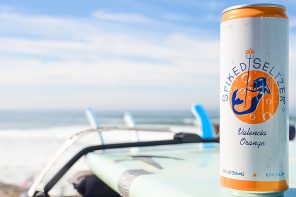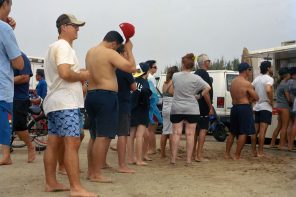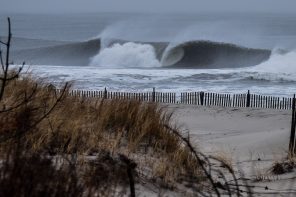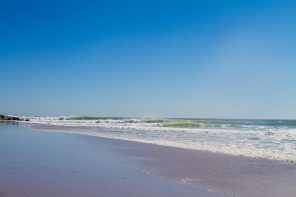Twice a week, sometimes more, a handful of year-round East End residents leave their families and begin a 100-plus mile commute toward Manhattan to work for the FDNY. The trip takes about two-and-a-half hours each way, and that’s just the beginning. Firemen work on a schedule of 24-hour shifts that can keep them away from home for days at a time.
This type of dedication might come as a surprise to anyone unfamiliar with the magic of Montauk, how it feels to come out the other end of the Napeaugue stretch and get that first glimpse of town, how the light and air changes from just a few minutes before and the landscape goes from manicured and contained to raw and wild. But those who have been struck with the Montauk lightening bolt—natives, transplants and visitors alike—know the feeling of being pulled back, again and again.
Firefighters are a notoriously private (and humble) bunch, so we’re grateful for the three Montauk residents and FDNY members who were gracious enough to give us a rare peek into their lives, both on—and off—the job: Justin Zorbo, 34, of Engine 298 in Jamaica, Queens, Brian Walsh, 42, of Ladder 137 in Rockaway, Queens and Tom Staubitser, 25, a second generation fireman at Ladder 124 in Bushwick, Brooklyn. We chatted with each about their love for Montauk, surfing and what it’s actually like on the job.
Interview:
How long on average do you spend commuting to work and how do you spend the time?
TS: 116 miles door to door. I listen to all types of music. Sometimes I listen to the commentary of a surf contest or a Rangers game. You gotta find ways to keep yourself entertained.
JZ: Ahhh, the commute. People usually say, “How long does it take? You’re crazy!” To which I respond, “It’s a small price to pay to live in paradise!”
BW: The commute is generally about two and a half hours on the best Sunday morning, about 120 miles total. I usually listen to Howard Stern—he gets me through the drive. But once I’m back in Montauk, I think, “That wasn’t so bad.”
Ok, that’s intense! What makes it all worth it to you?
TS: Montauk is a special place. After a long tour in Brooklyn, with all of the commotion and sirens, the smell of the ocean and sound of the waves breaking gives me a feel of total relaxation.
JZ: After being at work for 48 hours, I feel like I’m shot out of a cannon and ready to be home. And then after being home for three days I’m ready to be back in the city again. For me, it’s the perfect balance.
BW: I love the surfing scene out here. I love that we’re slightly isolated and there’s so much more open space. Even when there are a million people here in the summertime with a little effort, you can still get a spot to yourself on a beautiful beach.
What made you decide to become a fireman?
TS: My father became a fireman for the FDNY in 1985 and didn’t retire until 2012. Growing up, I saw how great the job was and how many opportunities it afforded my family. I also saw the brotherhood and camaraderie that came along with the job—on and off the job, the guys look out for each other.
JZ: I always wanted to be a fireman. My mom has pictures of me with a plastic fire helmet on and a garden hose and I guess I never lost that feeling. I consider it one of the top three best decisions I’ve made in my life—one of the others being moving to Montauk.
BW: My best friend’s dad was in the FDNY. I started out working in Manhattan in documentary film production, but I was escaping back to the beach every weekend. Becoming a fireman was the perfect fit for me because the schedule allows the flexibility to travel around the country several times a year.
What type of person do you think is attracted to this line of work?
TS: You get guys who had a great job making good money on Wall Street and guys who banged nails seven days a week. All the guys I work with are fantastic firemen who always have a lesson to teach or a story to tell.
JZ: People come from all walks of life. There are surfers (more than I ever would have imagined), Ivy League graduates, ironworkers and plumbers. But the common thread is that everyone really wants to be there, both for the excitement of the job and the chance to help people.
BW: Definitely somebody who likes being physically active and wants to help other people. Of course if you’re scared to run into a burning building, you probably shouldn’t become a fireman.
Most people have no understanding of what it’s like to do your job. Any experiences you might be able to share that have stood out in your mind over the years?
TS: We had a fire one late night right before last Christmas. Once we got inside the apartment we had to mask up because the smoke was so thick—you can’t see your hand in front of your face. We knew it was time to turn around when the fire started coming out of the room it originated from and rolled across the ceiling over our heads, then down the walls behind us. But with all of that going on I knew I would be fine because I work with great firemen who will look out for me and I’ll look out for them. It’s what this job is all about.
JZ: I wasn’t on the job on September 11th so nothing I’ve seen in my career could possibly equal what those first responders witnessed. But during my time with the FDNY I’ve responded to two tragedies. The first was the Cory Lidle plane crash in 2006 and the second was the 91st Street crane collapse. Other than that, cellar fires in Jamaica Queens are pretty bad too. Just imagine going down the wrong end of a chimney to put out a fire.
BW: You’re not going to a fire every time, but you still prepare for a fire every time because you never really know for sure when a call comes in what’s going to happen once you arrive on the scene. I’m definitely proud of our firehouse in Rockaway and what we do for the community, especially during Hurricane Sandy.
What might surprise people to learn about what it’s like to work for the FDNY?
TS: We are a family and we truly believe that. Whether we work in Brooklyn, Queens or the Bronx we always refer to each other as brother. I would never have to worry about one of these guys coming to get me if I was in a bad situation.
JZ: I don’t think anyone in the general public has any idea how much effort goes into a promotional exam for the FDNY, or the level of competition. It’s basically a second job.
BW: There’s such camaraderie between the guys—we’re more family than coworkers. We generally work 24-hour shifts and don’t leave the firehouse without everyone else so the firehouse becomes like a home.
What do you do on your days off?
TS: I love to surf. There’s nothing better than getting in the water and washing away all the stress. I also like to travel, whether it’s to the Caribbean or Hawaii to surf or to a city I’ve yet to see to make some new memories.
JZ: I try to surf whenever I can. I also love the Boardy Barn, hahaha. That’s no secret to anyone who knows me, but my attendance has diminished in recent years. I also just love hanging at the beach but who doesn’t, right?
BW: I spend time with my family and surf—those are the two things that brought me to Montauk and will always be my top priorities.
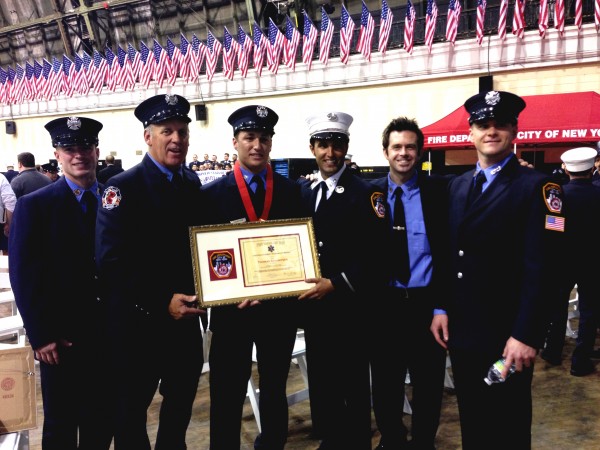
Tom Staubitser Jr. (Middle) to his left, his father Tom Staubitser Sr. a retired Montauk Resident NYFD Fireman, Justin Zorbo (Right) and some of their NYFD friends
Bottom line, you’re as dedicated to Montauk as you are to your jobs. What makes it all worth it?
TS: Just like the guys at the firehouse are a second family, it’s even more so with the guys I grew up with and went to school with in Montauk. Montauk is such a tight-knit community. Everyone is really close and the town always comes together in times of need.
JZ: The longer commute is worth the quality of life. Except for eastbound Fridays in the summer, the trip can actually be very scenic and relaxing. I always say, it’s a small price to pay to live in paradise.
BW: There really is no other place on Long Island like Montauk—I love the community out here.

